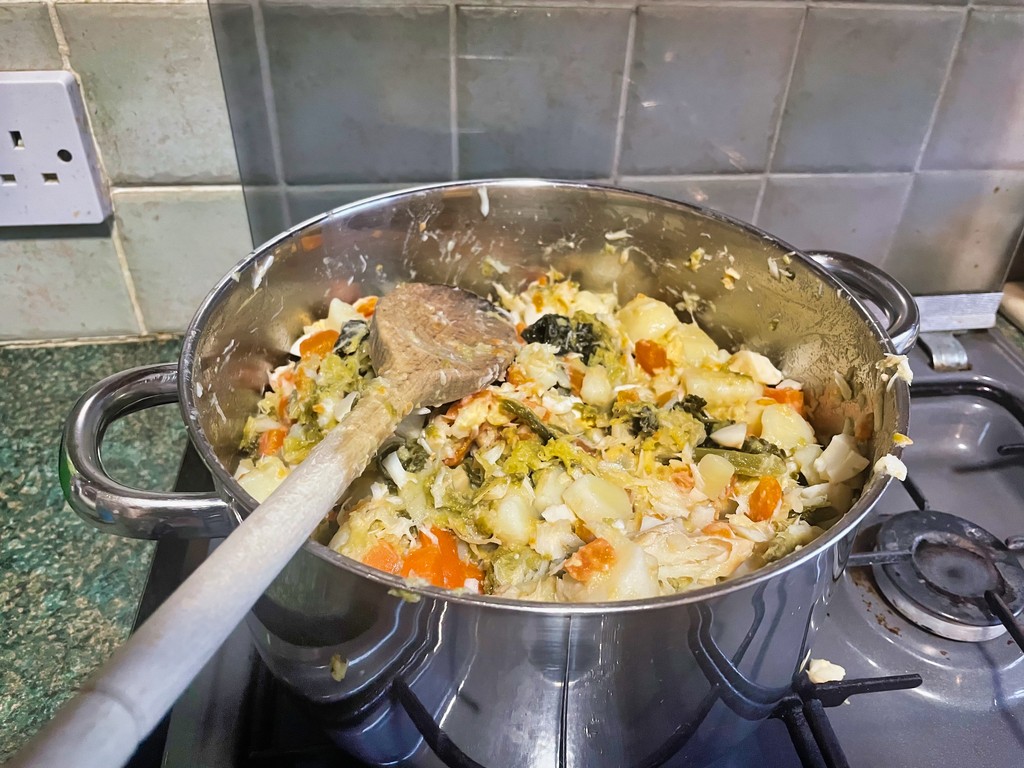Portuguese Christmas recipes
Last year (2020) we spent Christmas in “lockdown” and we tried to make ourselves our full traditional Portuguese Christmas recipes from scratch – while not being in Portugal. Herein lies the first issue: there are many different “traditions”, but these are the ones that me and my partner are used to.
Traditionally, Christmas celebrations in Portugal start on the night of Christmas eve and carry on during Christmas day. The main meals are then dinner on the 24th December and lunch on the 25th December.
Christmas eve dinner
As mentioned, we will follow two separate traditions. From my family’s side, originally from the north of Portugal (Porto), we typically have boiled salted cod with vegetables (cabbage, onion and carrots), seasoned with olive oil, vinegar and garlic. From my partner’s side, the meal typically consists of octopus rice, accompanied with salted cod fishcakes (“bolinhos de bacalhau”) and pan-fried octopus (“filetes de polvo”).
Salted cod
Salted cod is a staple from Portuguese cuisine, with possible origins in the cod salt-curing methods of Basque fishermen that ventured into Newfoundland in the 1500s(Marques da Silva 2015) (Barata and Rocha 2015). Going through the centuries, even as recently as 1884, Portuguese writer Eça de Queiroz wrote in a letter to Oliveira Martins about his love of a “bacalhau de cebolada”(Sobral and Rodrigues 2013).
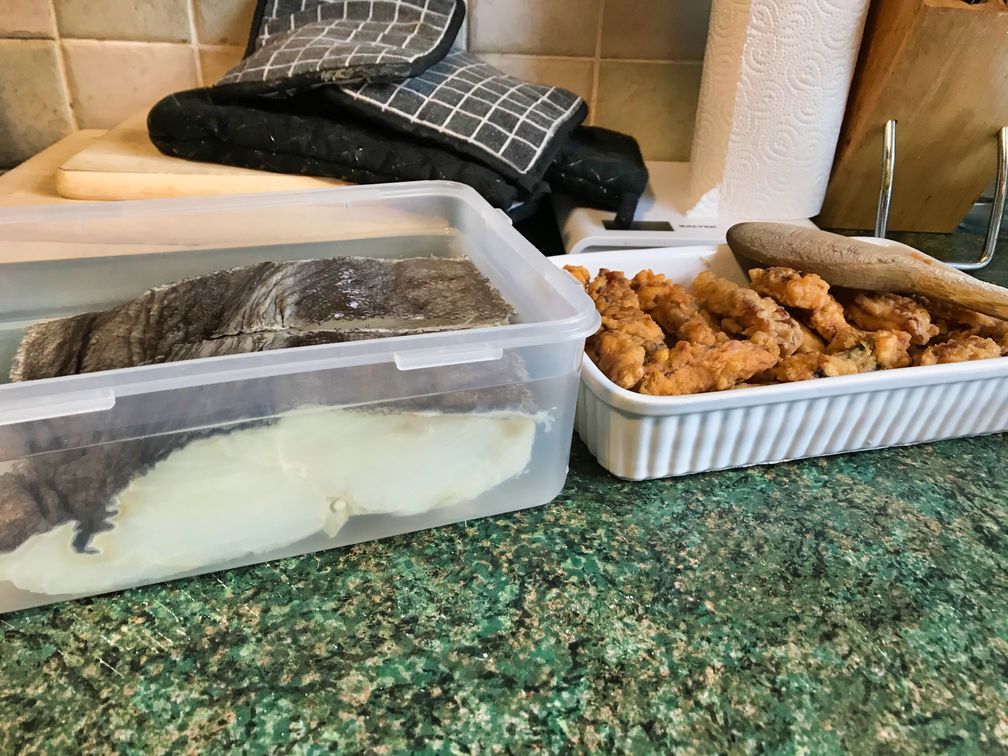
The salted cod needs to be soaked in water for at least four days to remove the excess salt (picture above, on the left).
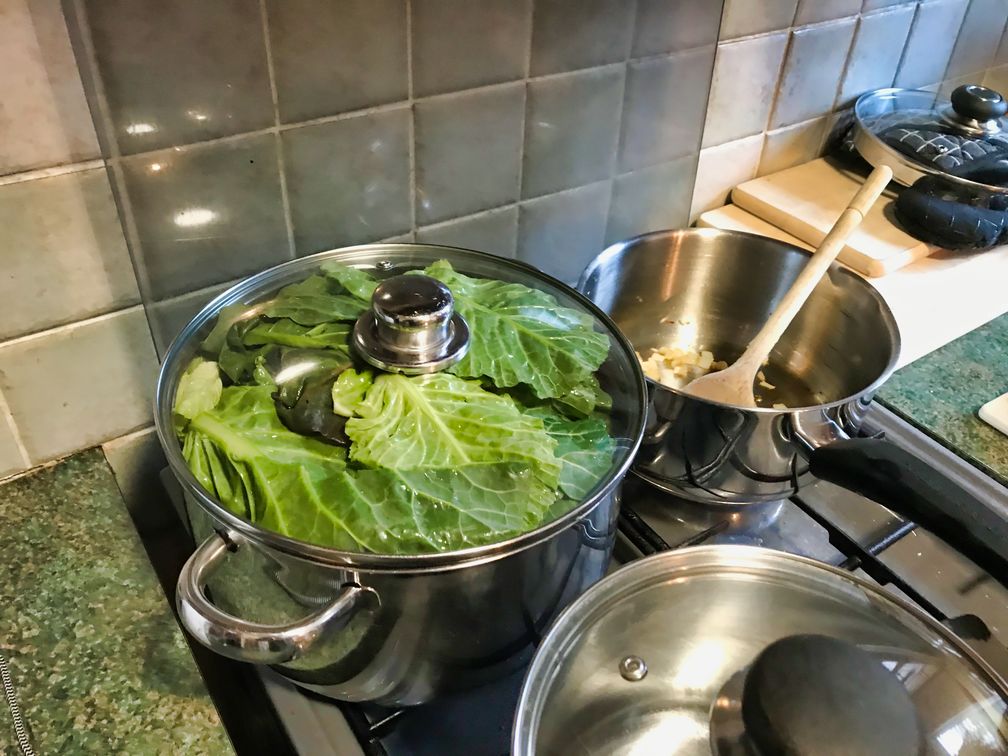
It’s a really simple dish: just put everything on a pot and let it boil for approximately one hour. Since the salted cod has a really firm fleshy texture, it won’t fall apart like fresh fish when boiled for a long time. Usually there’s no need to add salt, since the cod will probably still have quite a lot of salt in it, but it never hurts to double check.
We will cook around two to three times the amount of cod and vegetables that we need for the actual meal. The reason for this is that the starter for the next day (roupa-velha) is made from the left-overs of the Christmas eve’s dinner. So essentially, we have to make sure we have plenty of left-overs!
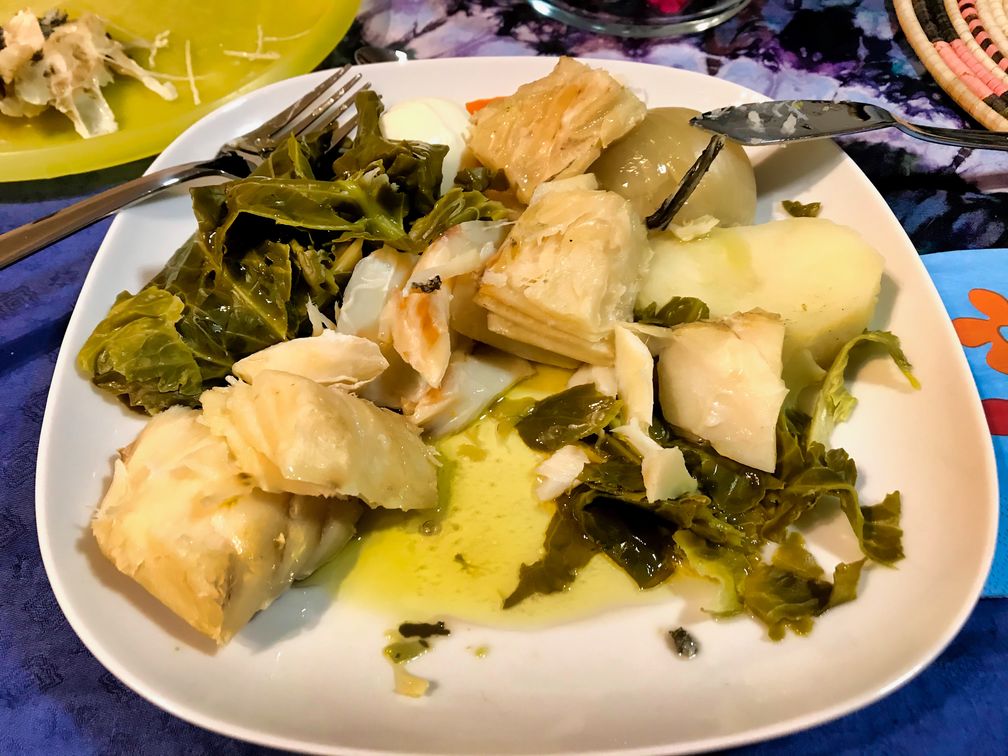
And here it is: ready to tuck in. As you can see, I like my salted cod with a very generous amount of olive oil and vinegar.
Octopus rice
Octopus is another northern Portuguese tradition, especially in the Minho and Trás-os-Montes, possibly due to the proximity with Galiza (Galicia) where octopus fishing has been historically a very important activity.
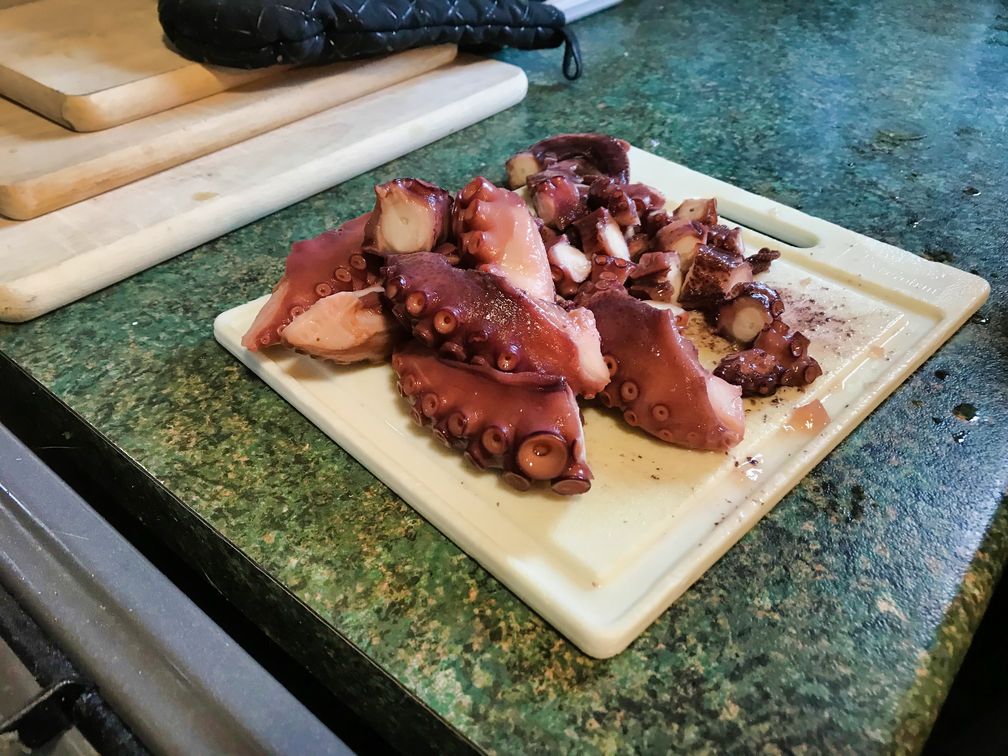
Next it’s the octopus rice. Boil the octopus with just some salt for seasoning. Knowing when the octopus is ready is really an art. Make sure its not undercooked, but don’t overcook it either since it will be quite chewy. Brown chopped onions in olive oil and add the water from boiling the octopus along with rice, the octopus and chopped parsley. The rice should have a fair amount of water and not end up dry.
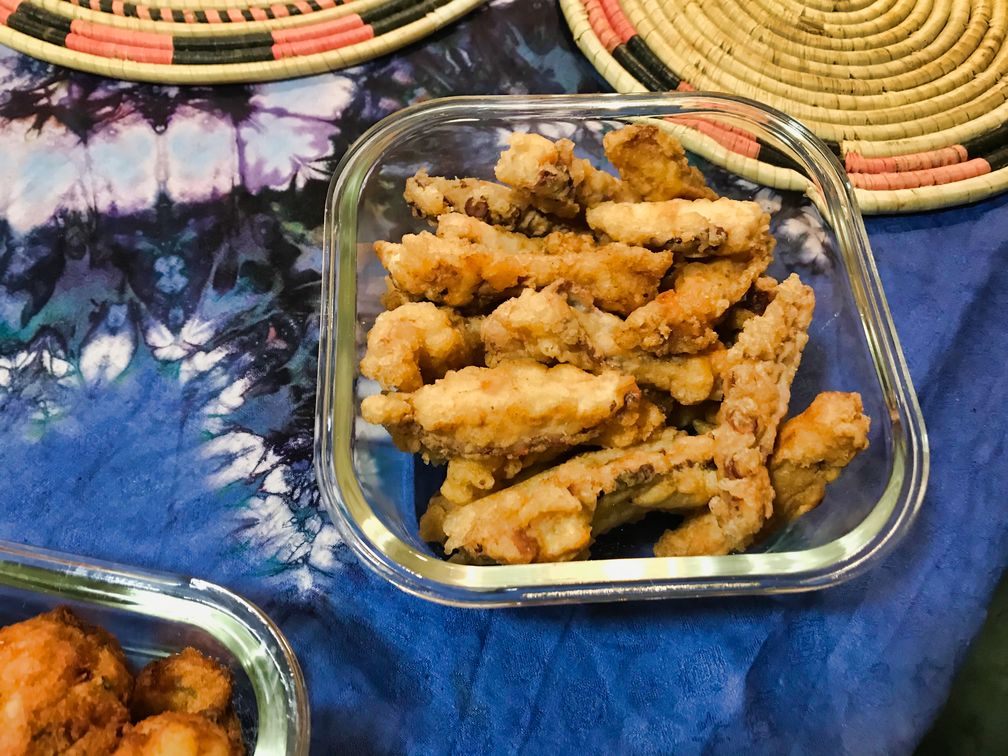
Part of the octopus goes into the rice and the rest is pan-fried (“filetes de polvo”). They are battered, with eggs and flour, and deep-fried.
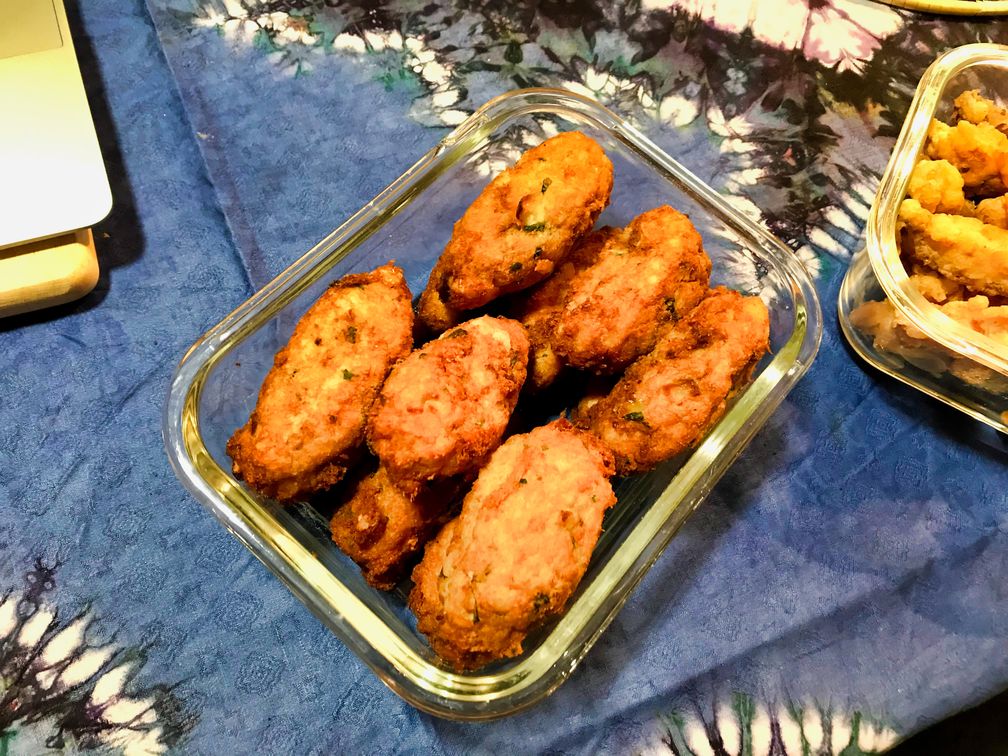
We then proceed to the cod fishcakes (“bolinhos de bacalhau”). These are done by shredding some salted code and mixing it with mashed potato, salt and parsley and then deep-fried.
Christmas day lunch
Roupa-velha
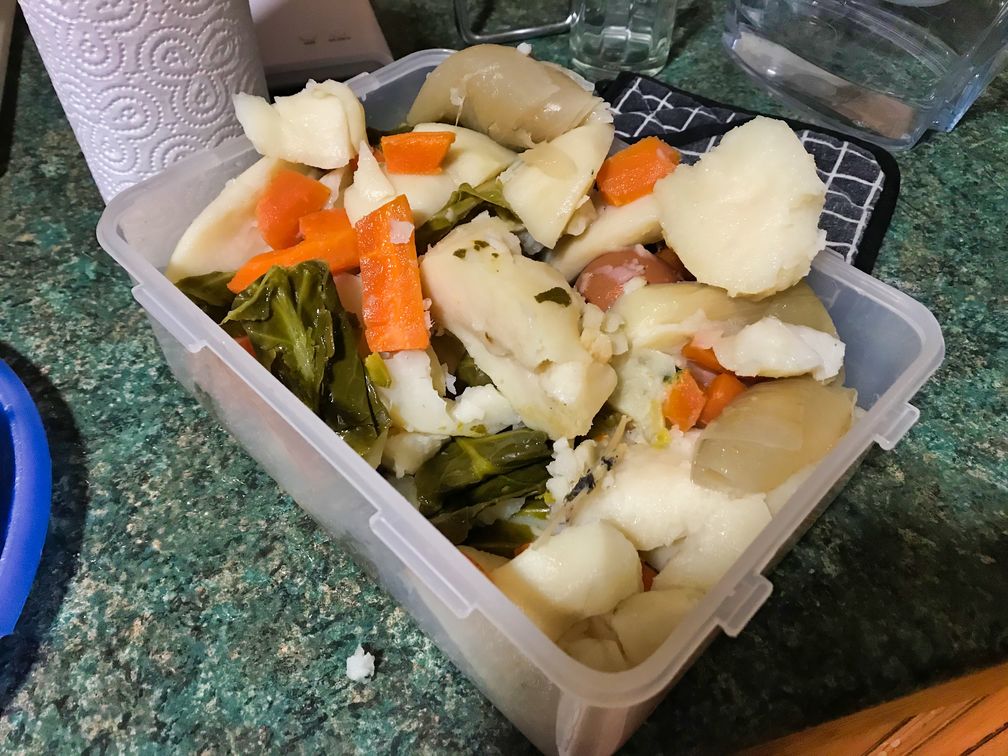
The reason why we cook way more quantities than we need for the salted cod, is to make something called “roupa-velha” (literal translation “old clothes”) as a starter on the 25th. This a left-over dish and we use all the left-overs from the Christmas Eve dinner.
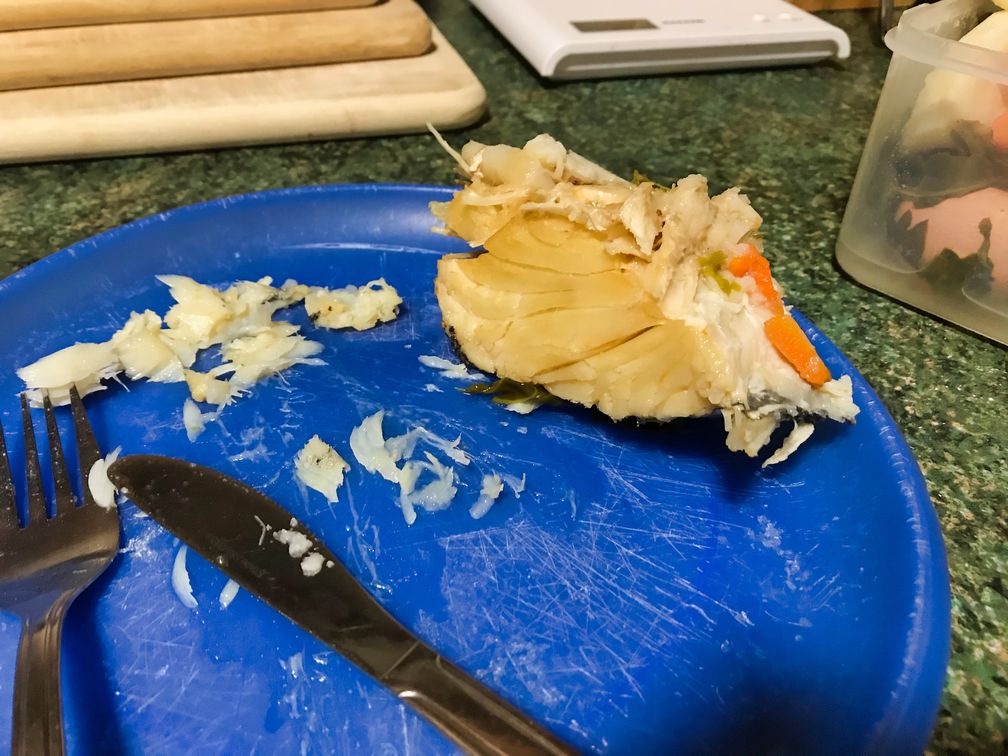
Start by shredding the cooked salted cod and removing all the fish bones and skin.
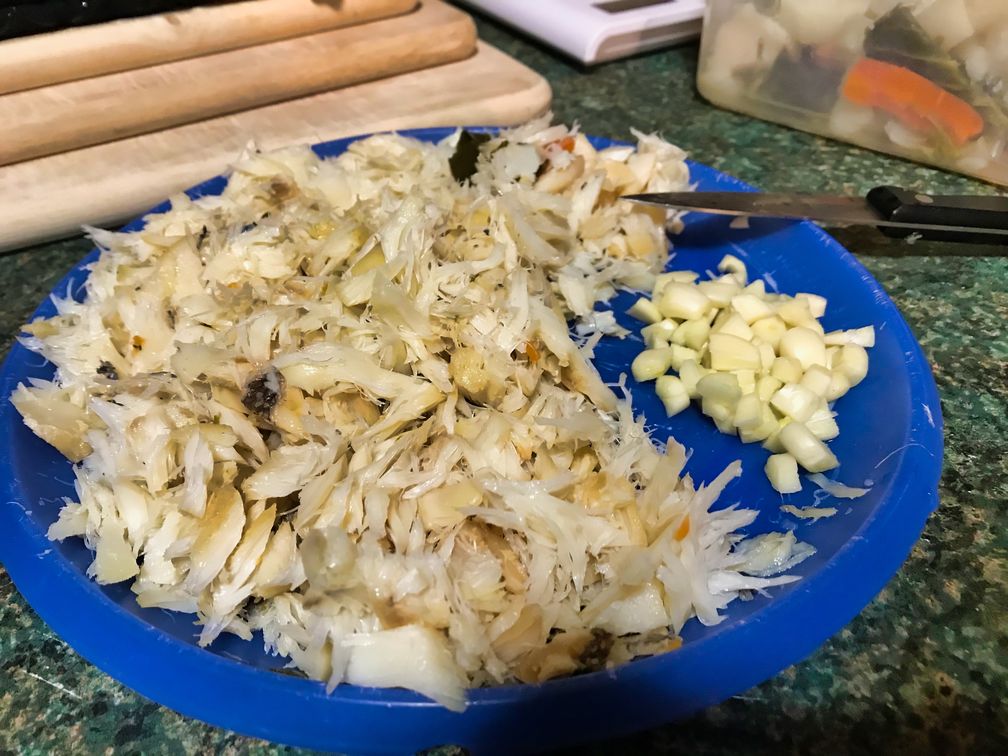
We then add a good amount of garlic (two or three cloves at least), and prepare a pan with some olive oil. We put first the garlic and let it brown.
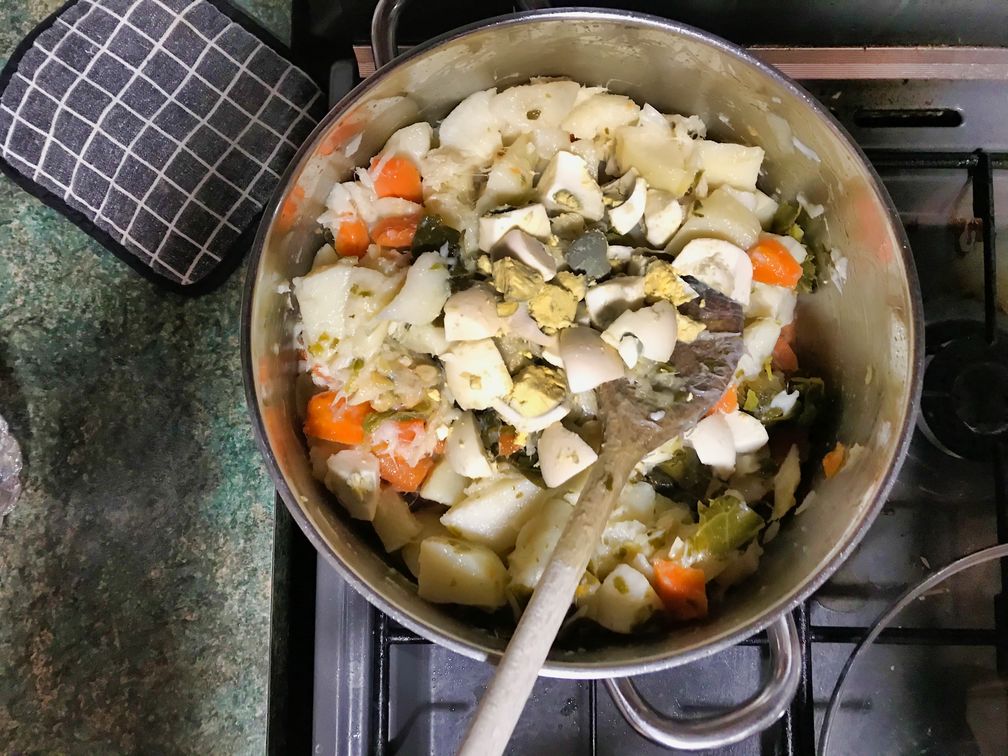
When the garlic is brown we add all the left-overs (potato, sliced egg, carrot, cabbage and shredded code). We stir it for at least 15 minutes and add vinegar. Lots of vinegar.
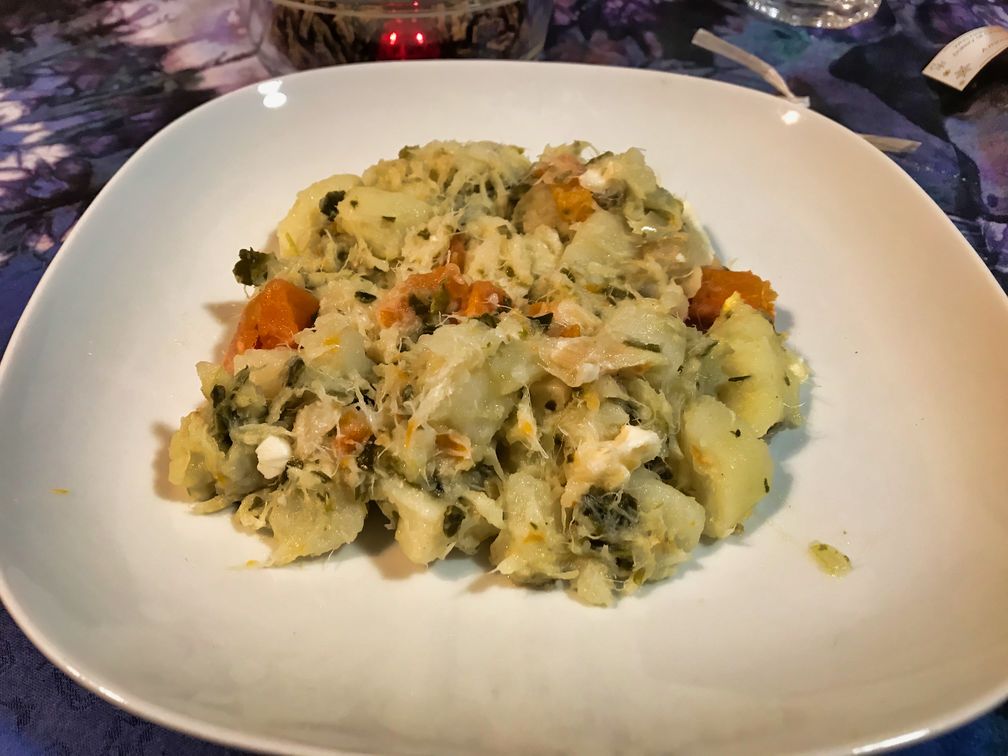
And here it is. Must be eaten while pipping hot.
Lamb roast
Usually on the 25th of December we eat a roast (turkey, lamb, goat or pork). We went for a lamb roast. It was seasoned with lemon, rosemary, garlic, paprika, olive oil and salt for four days.
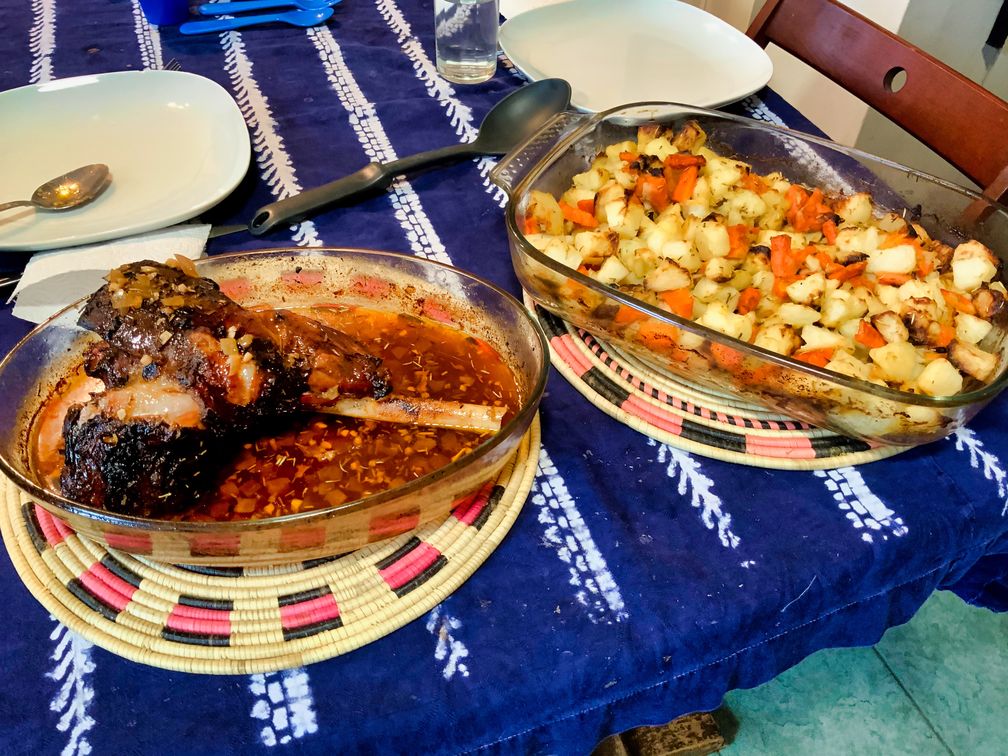
It is accompanied by roast potatoes and carrots and (optionally) some white rice.

And here it is! ## Desserts ### Aletria and arroz doce
Aletria is a typical Christmas dessert which is quite similar to rice pudding in taste, but instead of rice, it is done with vermicelli pasta.
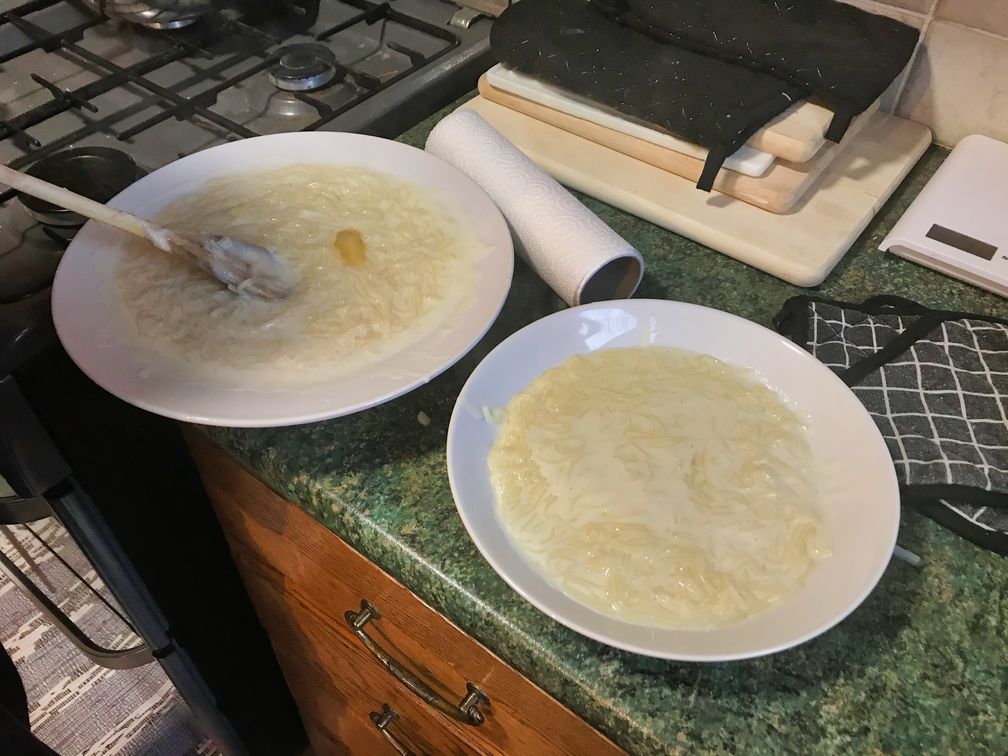
The preparation is quite similar to rice pudding, but adding some lemon peels to the milk mix.
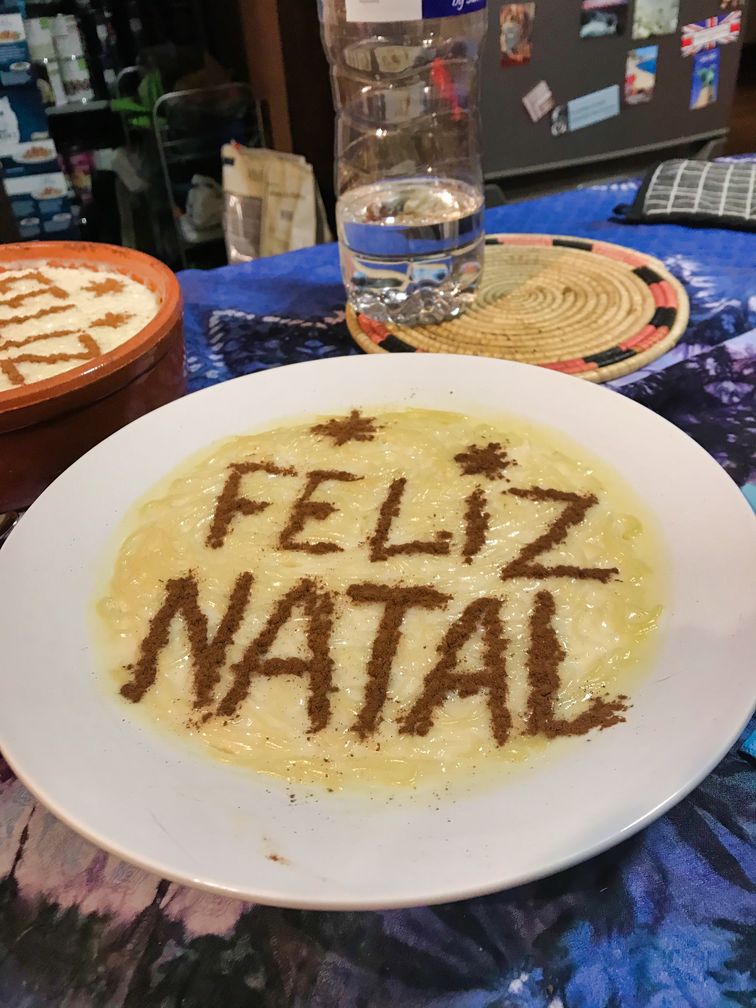
A cinnamon decoration is a must, here shown with a festive “Feliz Natal” (Merry Christmas).
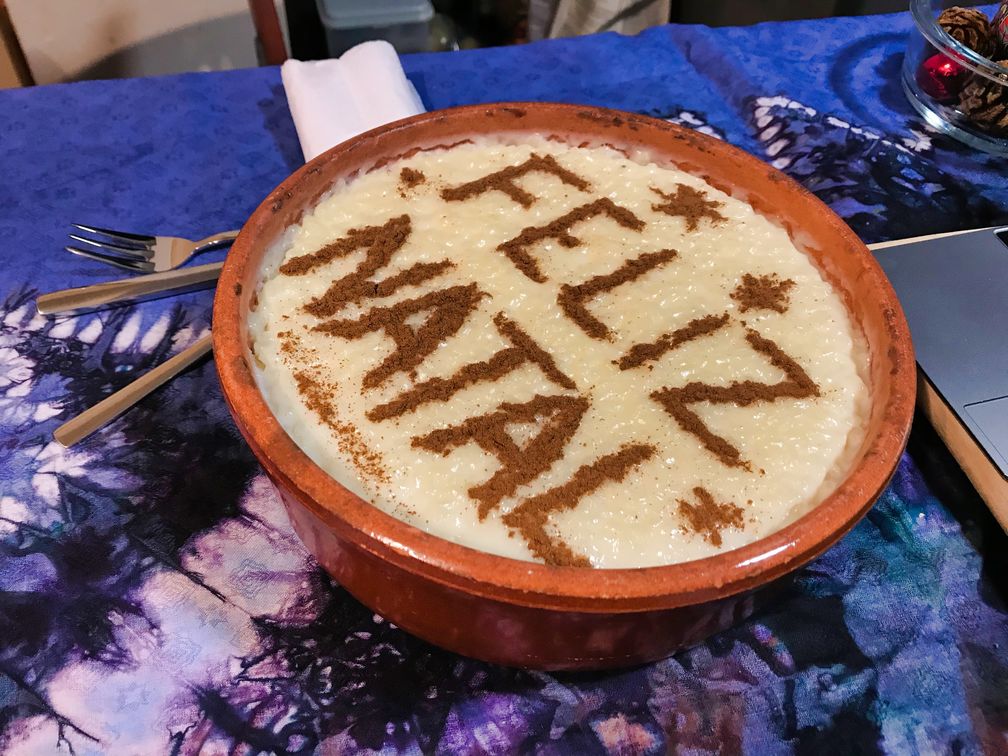
“Arroz doce” (literal translation Sweet Rice) is very similar to rice pudding, also with the addition of some lemon. ### Filhós
Filhós are a type of slightly sweet doughy pancake, usually sprinkled with sugar and cinnamon, traditional during Christmas. These are specific type of filhó called “Filhó tendida no joelho”, traditional from the Beiras Portuguese region, where the dough is stretched on top of the knee.

The dough has to be proven at a certain temperature. Here is the contraption we’ve used: a heating fan, heater and an Hibernate (!) book.
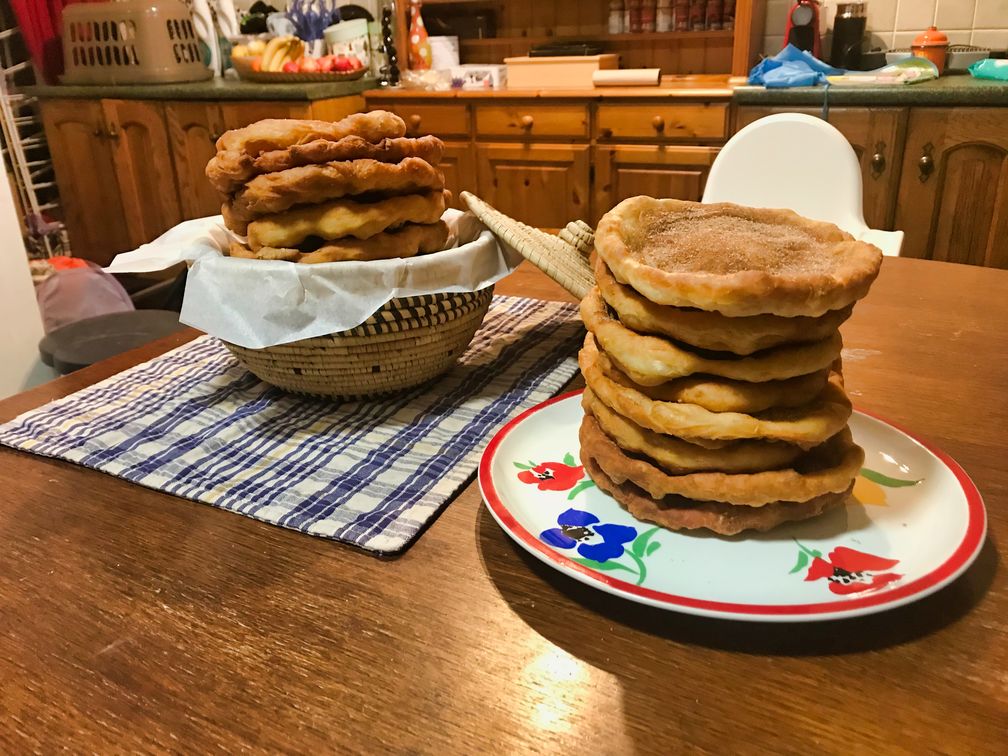
The dough must be proved (in our case at least 10 hours) so it can be stretched and fried lightly in olive oil on both sides. After draining any excess oil, they are sprinkled with a sugar and cinnamon mix.
Rabanadas
“Rabanadas” are in essence very similar to “French toast”. The way to prepare them is to leave dried bread soaking in milk and drained before deep-frying. After draining, until they are mostly dry and without much excess oil, they are sprinkled (generously) with a mixture of sugar and cinnamon.
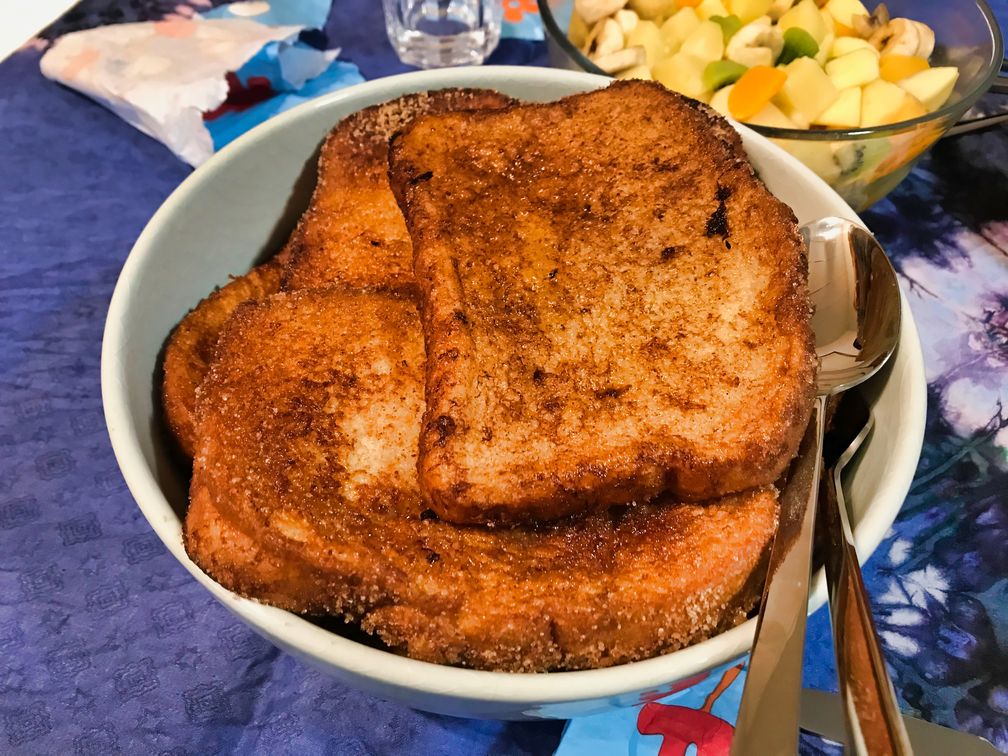
Bolo-Rei
Bolo-Rei (literal translation “King cake”) is a traditional Portuguese Christmas cake. A similar recipe to the modern one can be traced to the 19th century in Loire, southern France, sold for the first time around 1869 at the Confeitaria Nacional, in Lisboa (Modesto, Praça, and Calvet 1999). Since then it has become very popular and a common sight at Portuguese Christmas tables.
Although it is perfectly possible to do it at home, the one we had was store-bought.
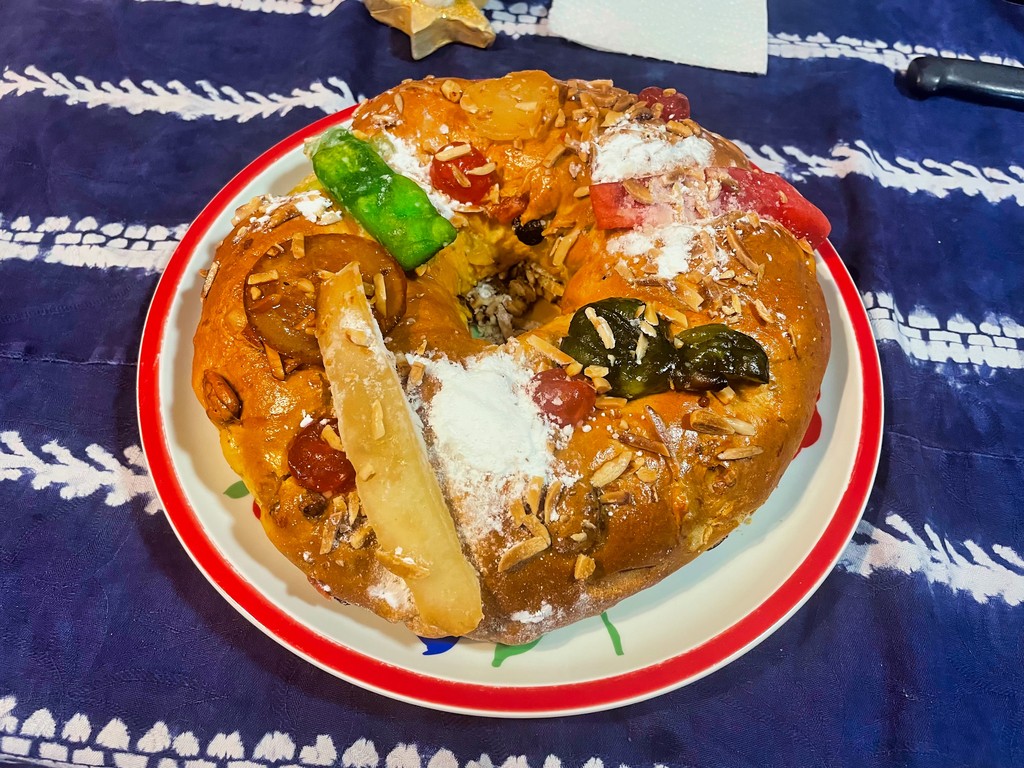
2021 update
This year (2021) we did another take on the “Portuguese Christmas abroad” theme. The recipes are still same as last year, so I’ve decided to just update with some of the 2021 photos.
Octopus
Last year I didn’t include a photo of the octopus being cooked before preparing the Octopus rice, so here it is:
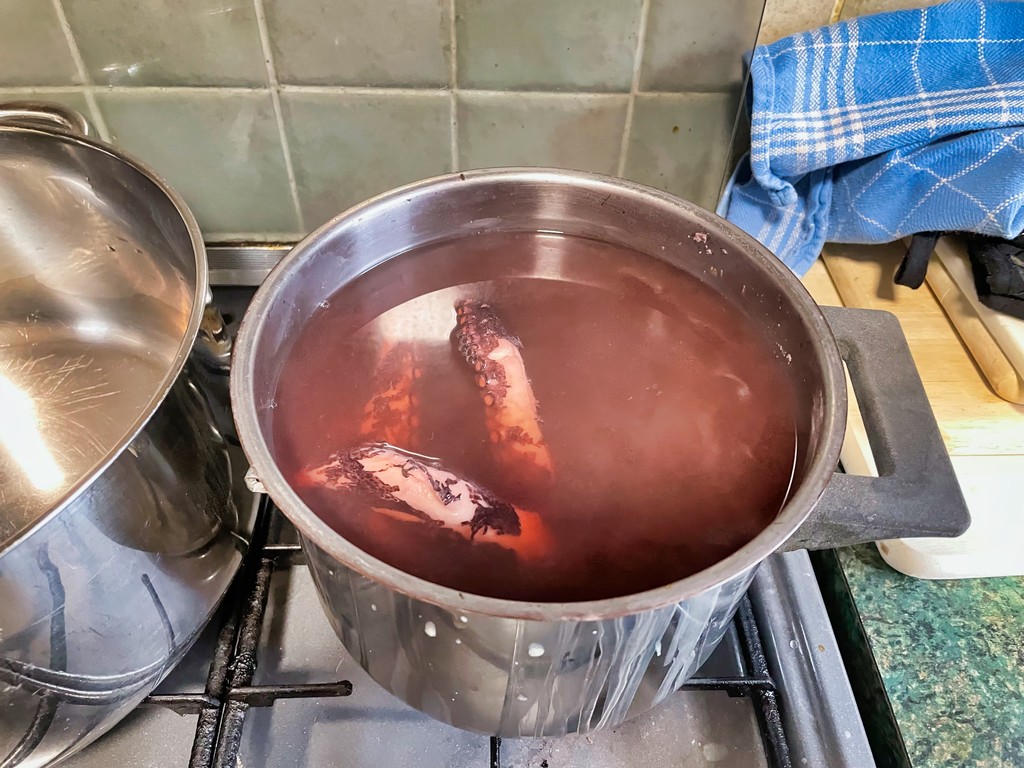
And here is the fried octopus for this year’s Christmas eve dinner:
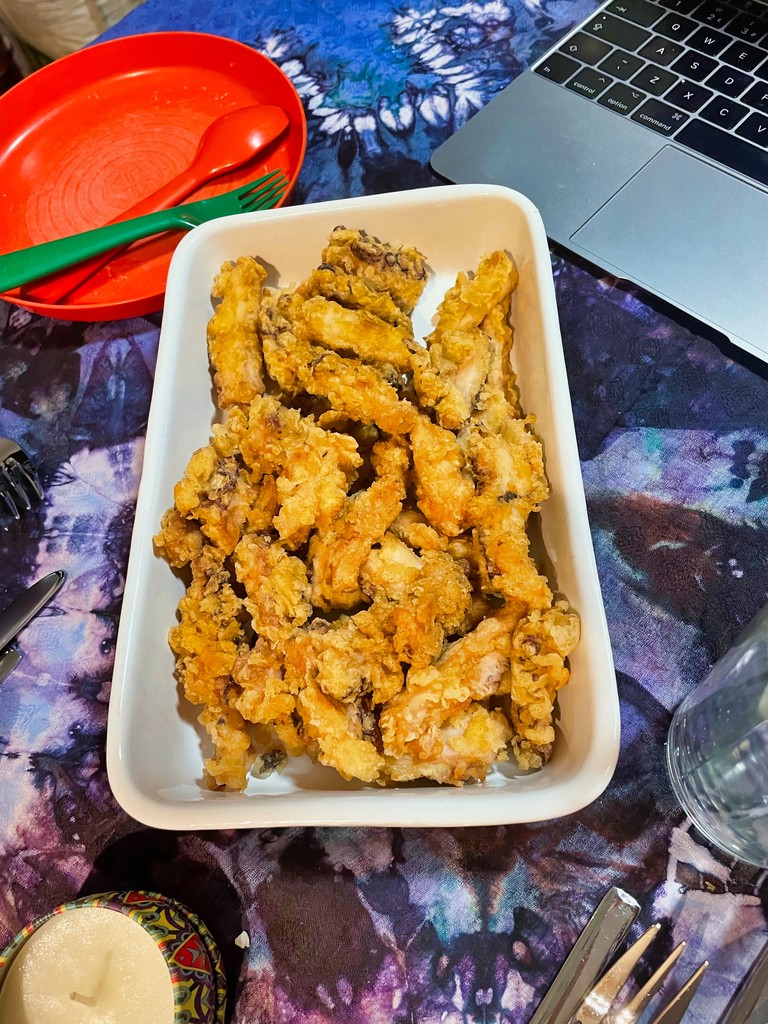
Filhós
Something I’ve also forgot to add last year was a picture of the Filhós dough after proving. This year it grew a lot more than last year because we added raw bread dough instead of baker’s yeast. Using raw bread dough is actually the proper way to do it, but we didn’t have it last year.
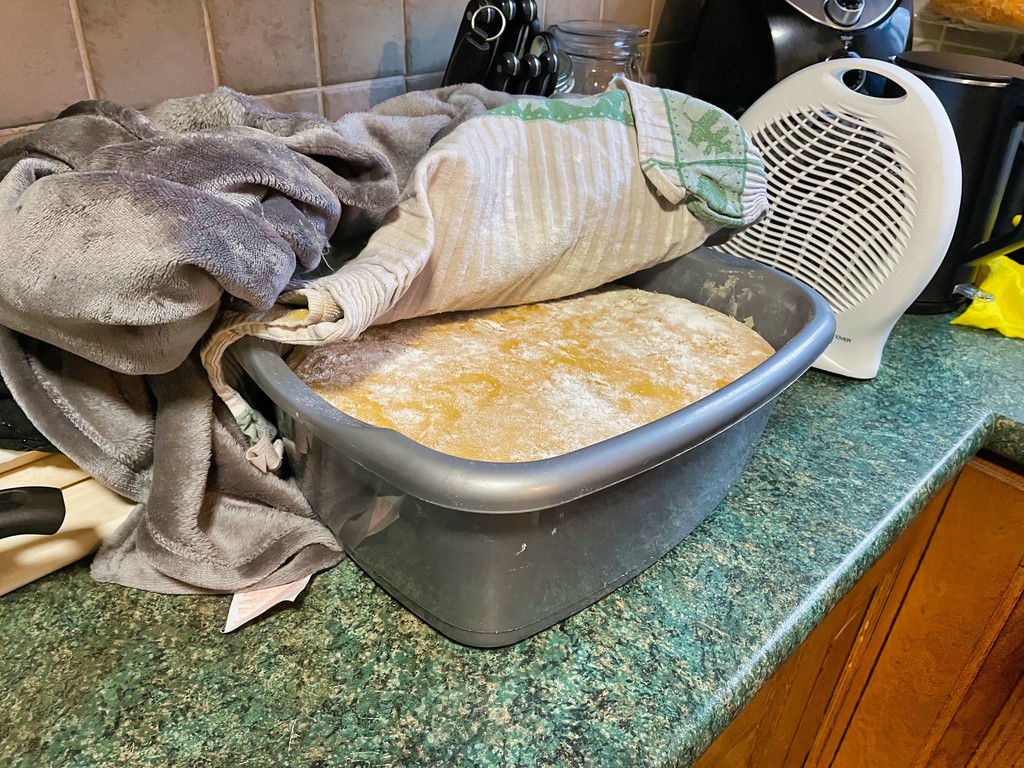
Last year I also didn’t include photos of the actual frying of the Filhós. They are deep-fried in olive oil, (not other vegetable oils) so for this amount of dough a considerable amount was needed. Something between 500-750ml.
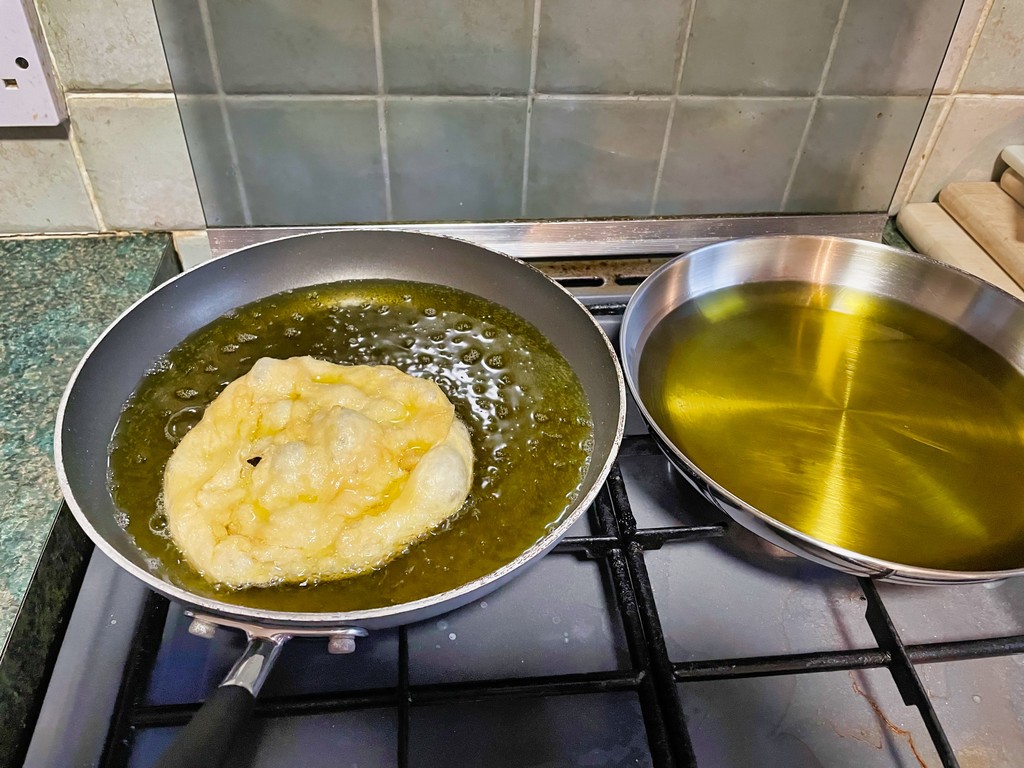
As here is the final product for 2021:
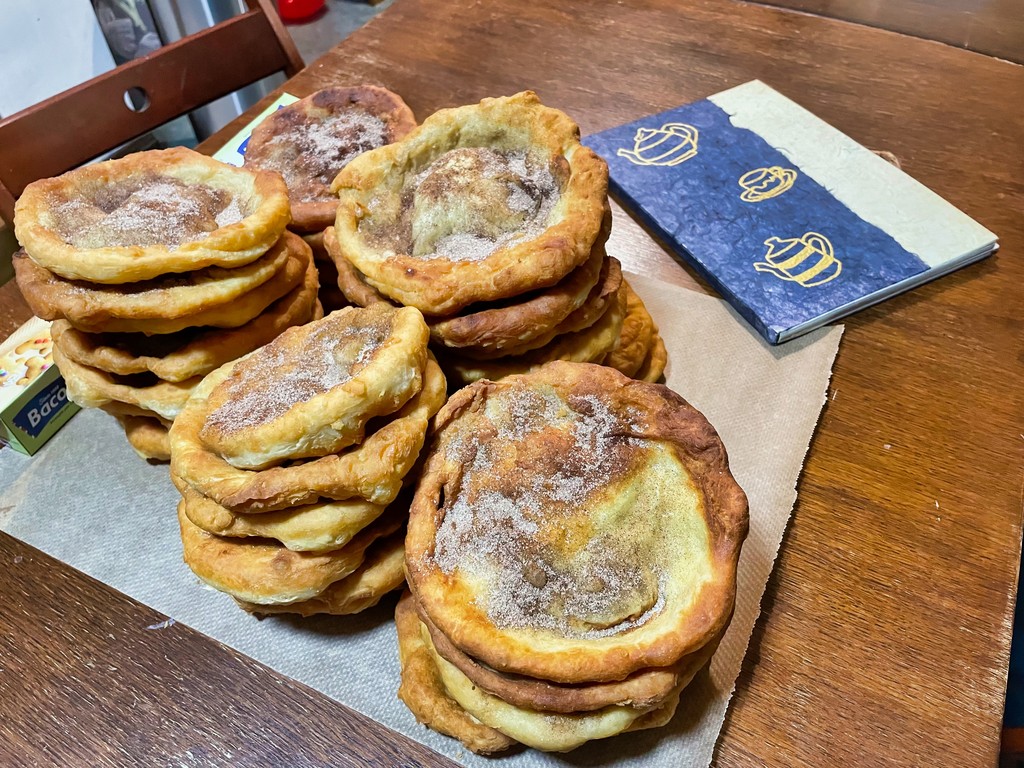
Rabanadas
The 2021 rabanadas. The full story on rabanadas is bove:
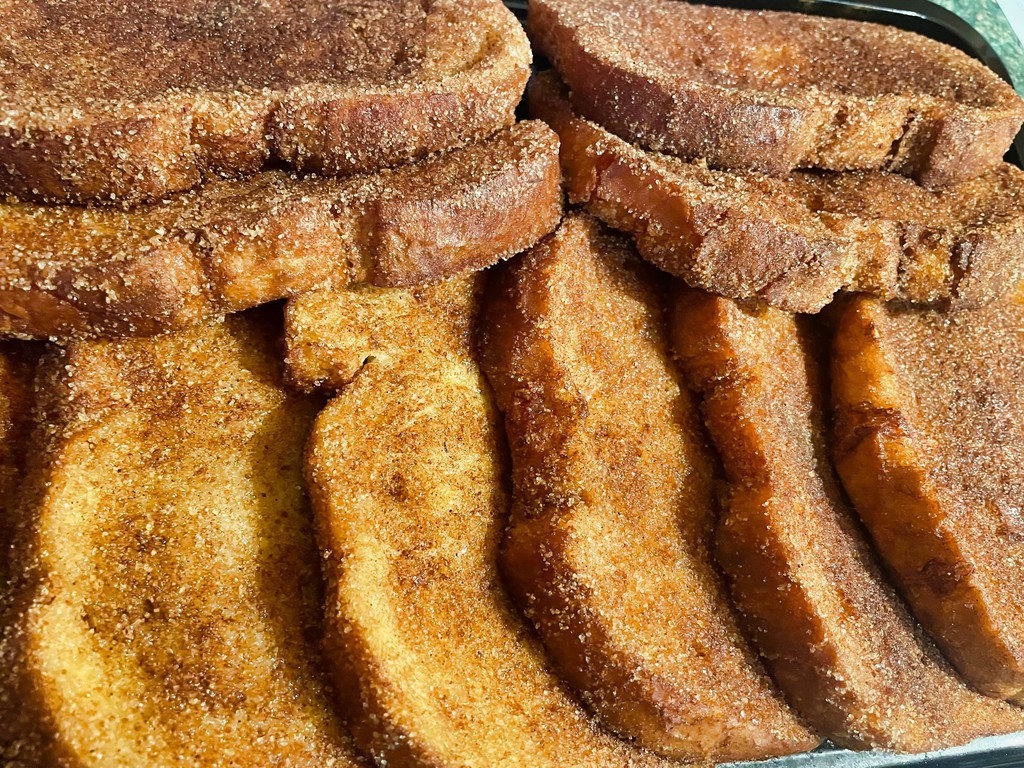
Codfish cakes
Here are the 2021 bolinhos de bacalhau (salted cod fishcakes):
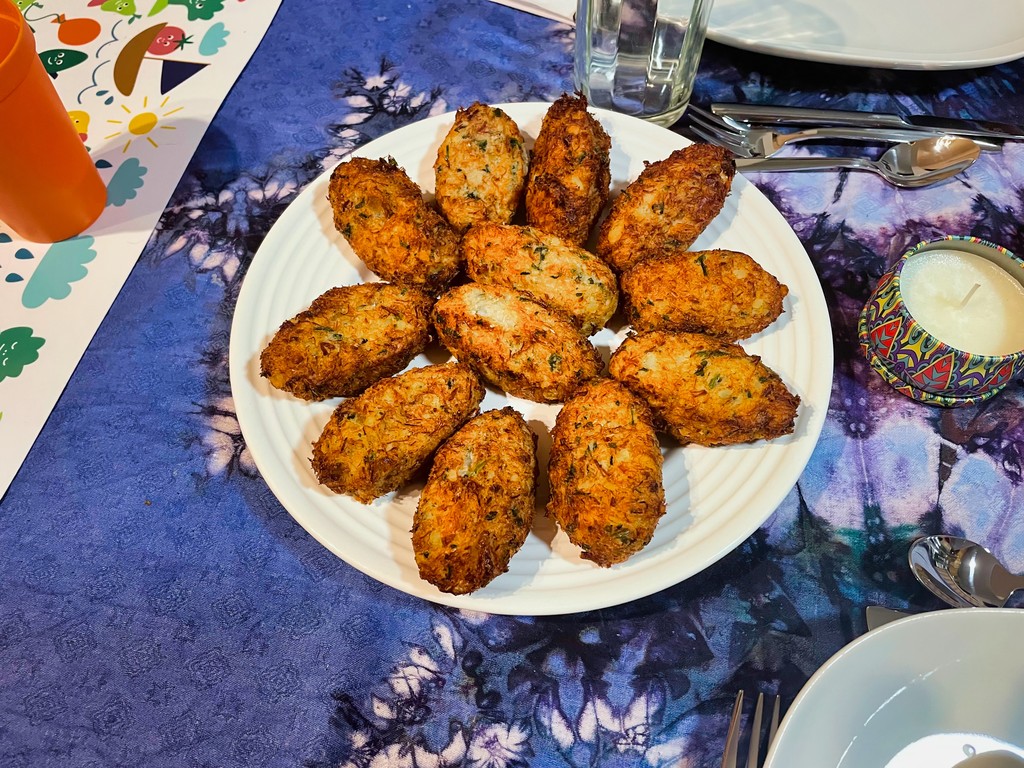
Salted cod
Cabbage, carrots, onions and eggs waiting for their turn:
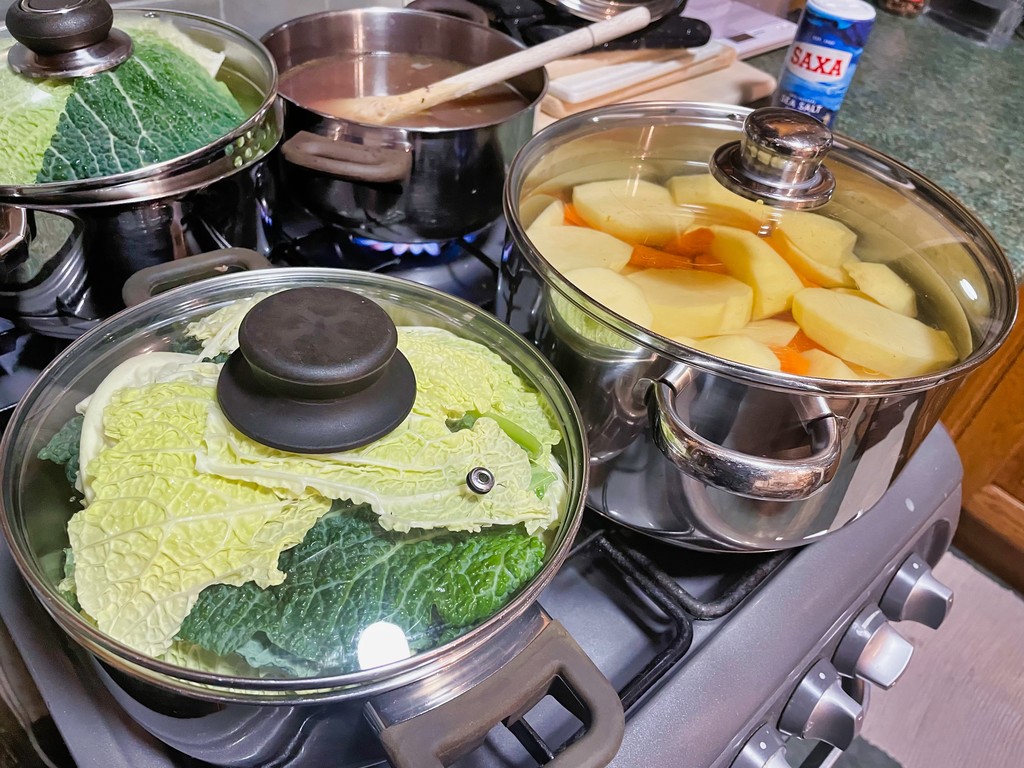
The salted cod draining a little bit Preparing the bacalhau:
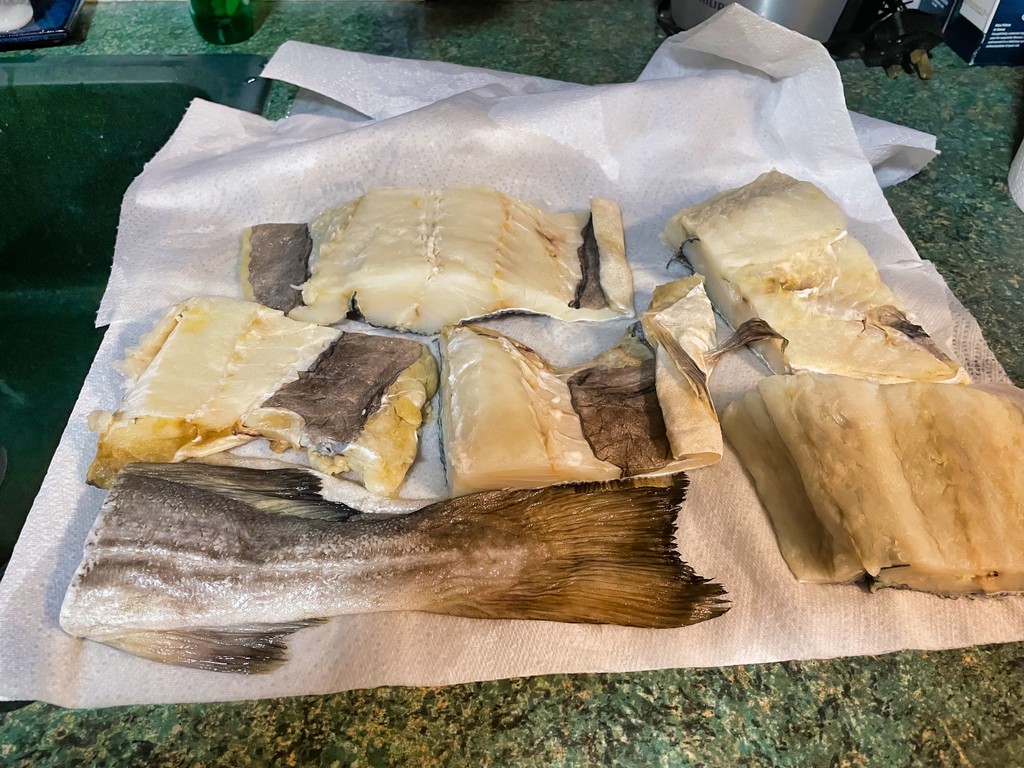
Cooking everything!
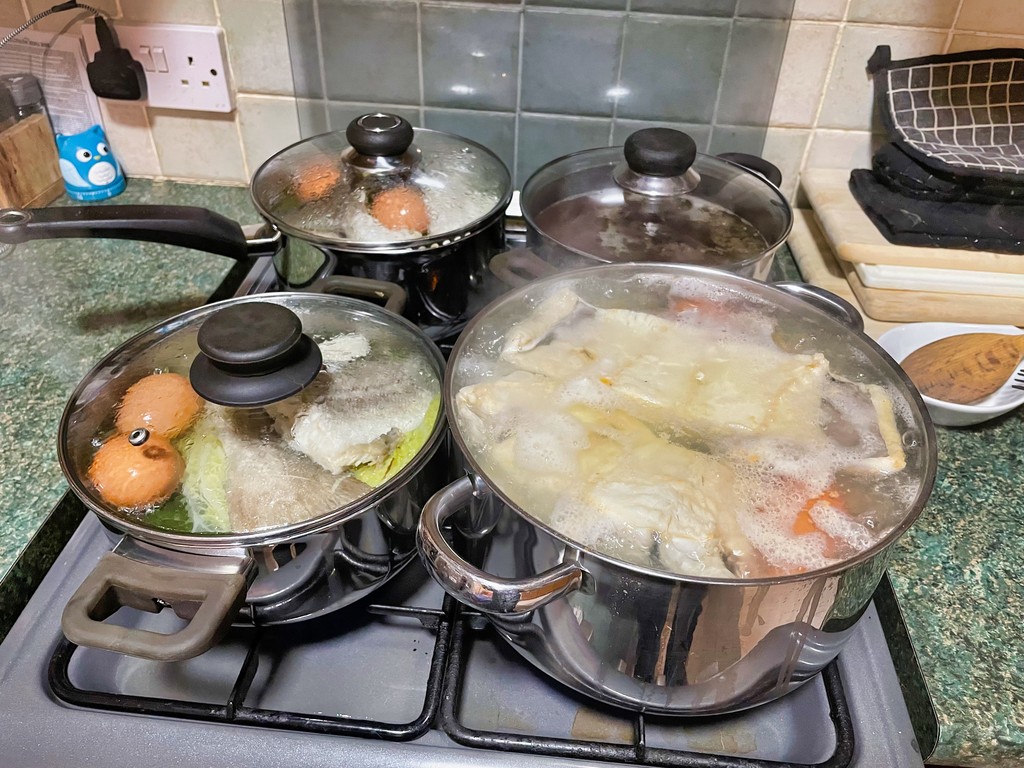
The final product:
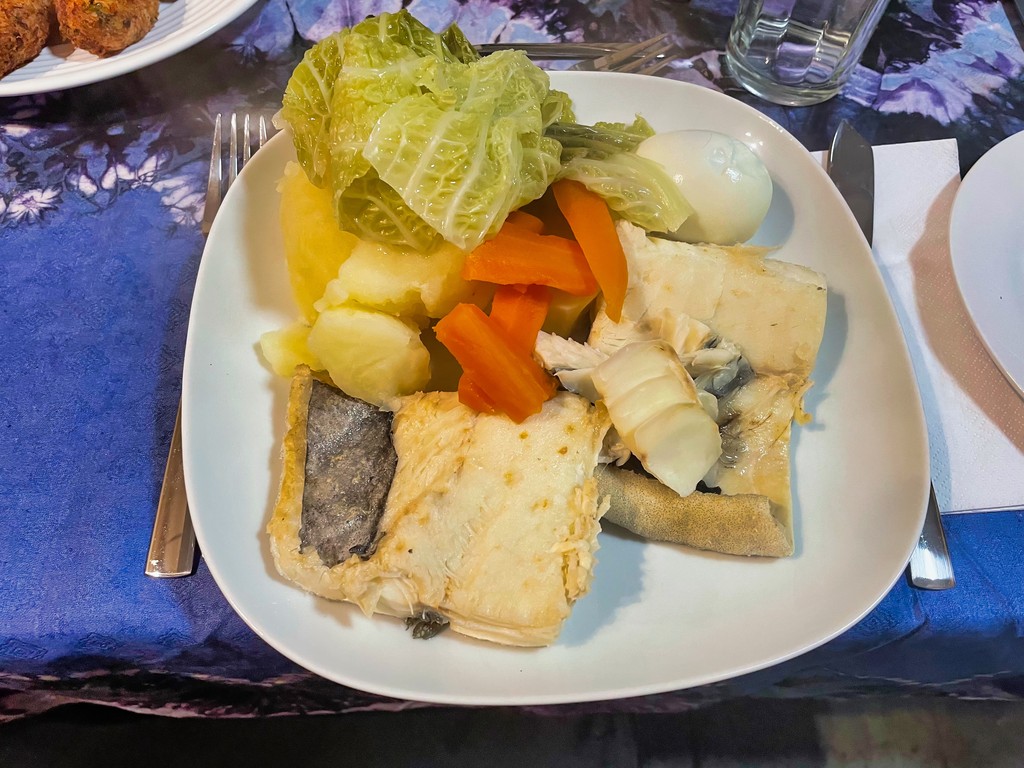
Aletria and arroz doce
Aletria and arroz doce:
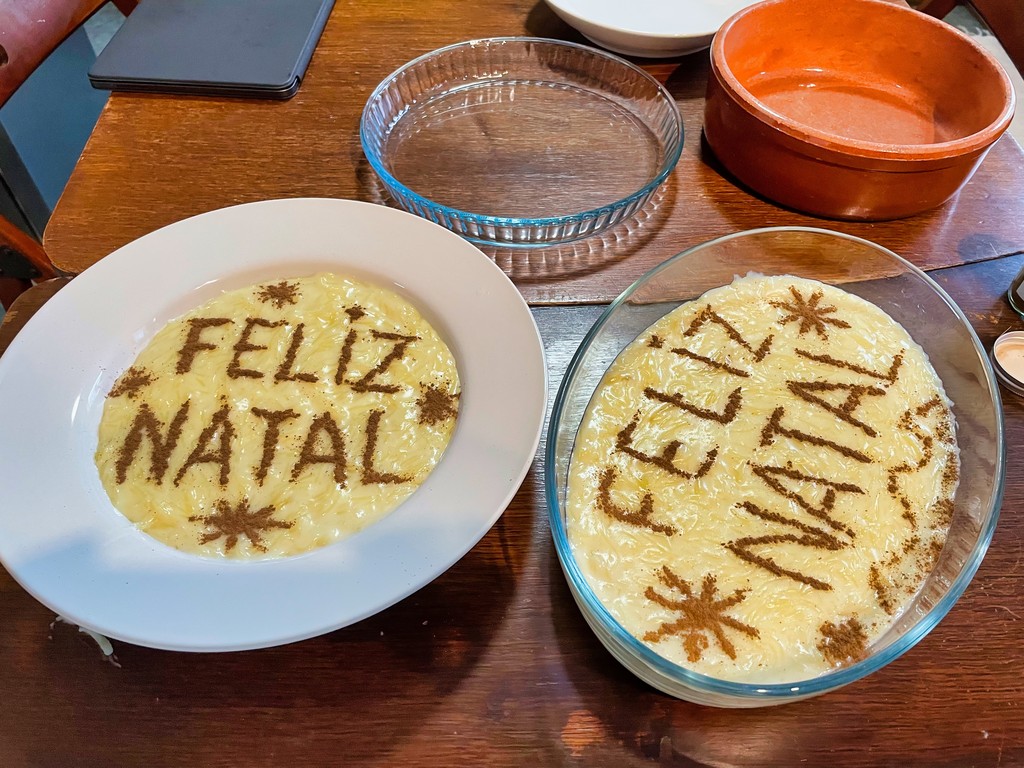
Roupa-velha
